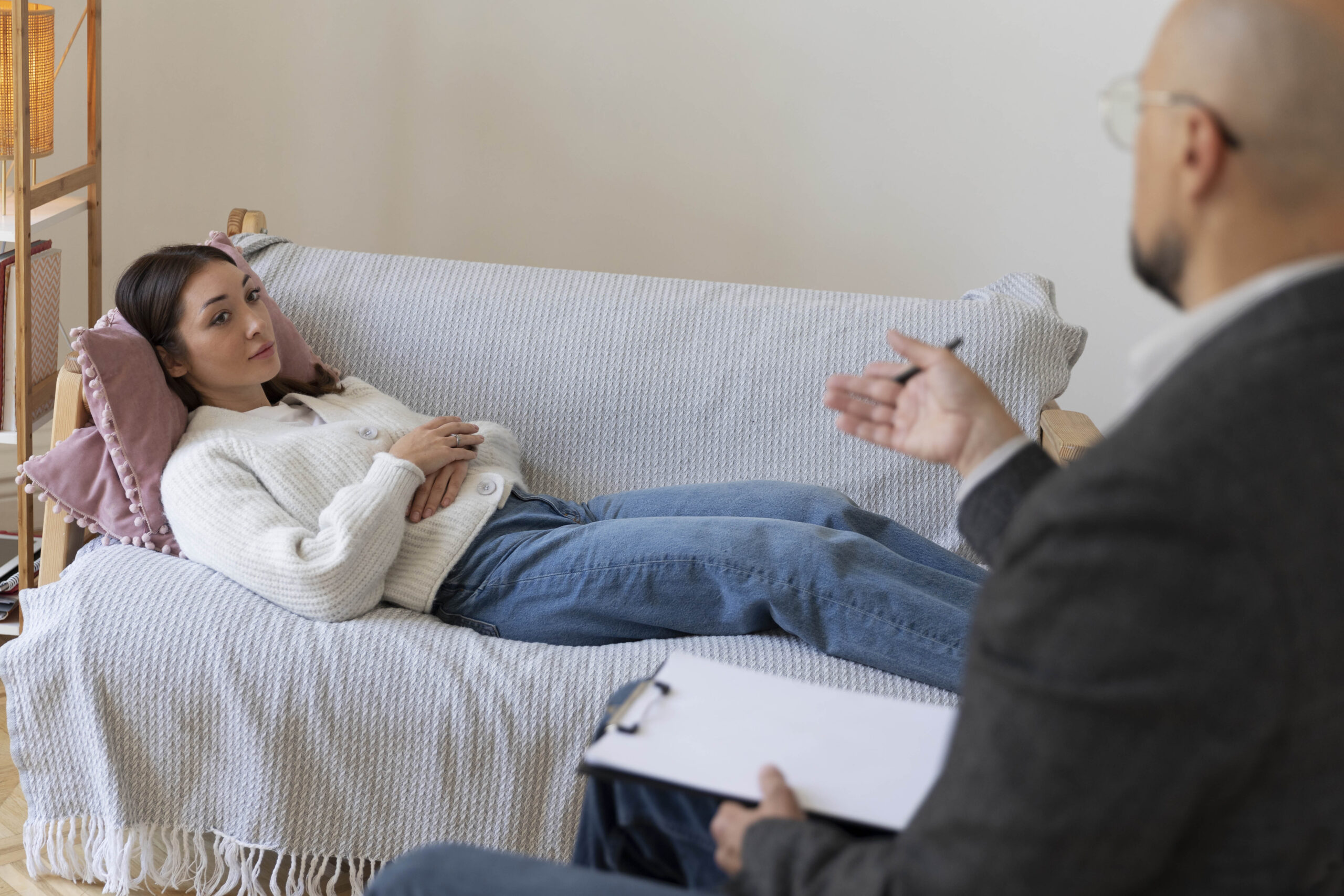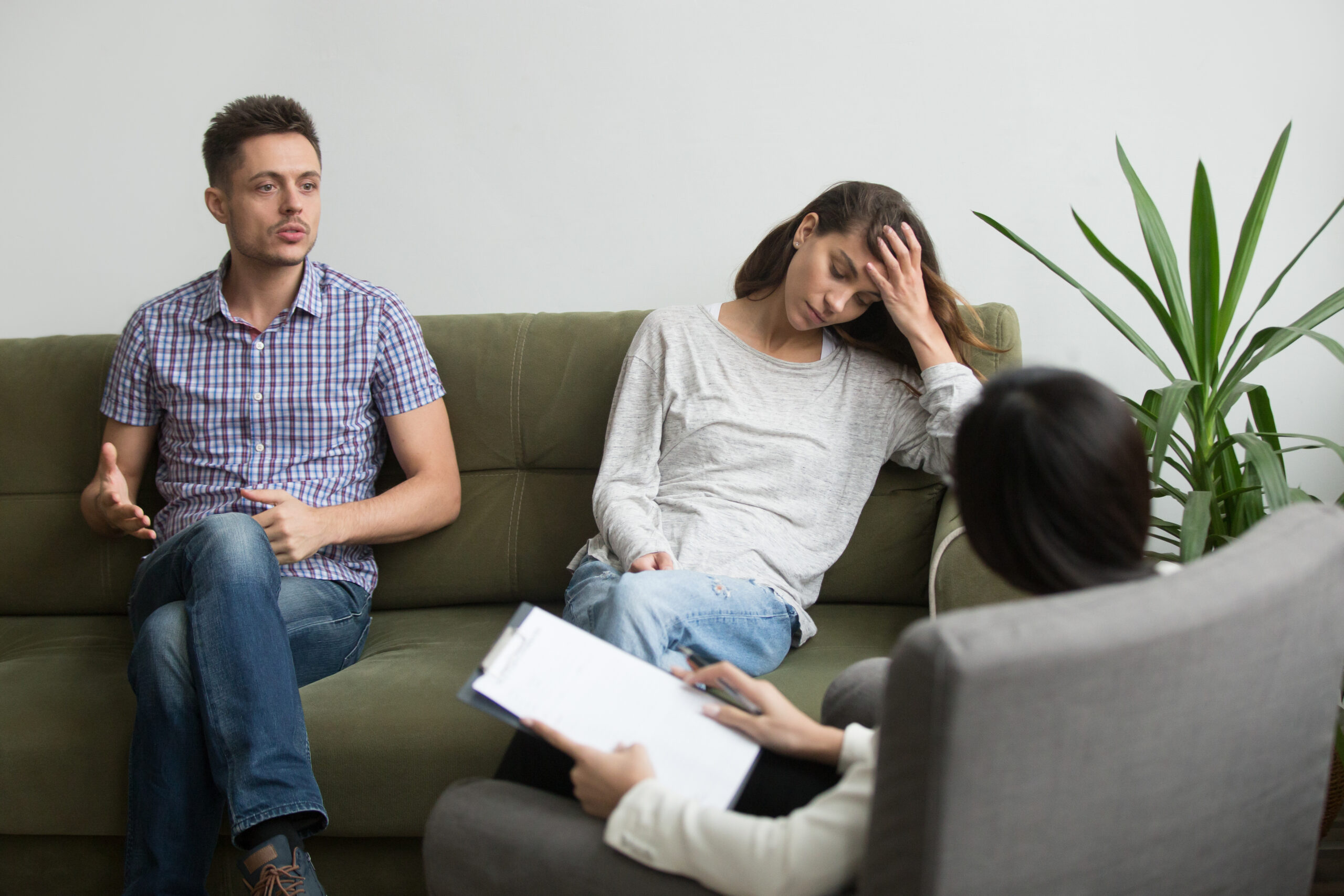How Do I Find a Qualified Depression Therapist in Los Angeles?
Are you feeling depressed and thinking about talking to someone? You’re not alone. Many people in Los Angeles deal with depression, but finding the right therapist can feel confusing or even stressful.
But, there’s a clear way to approach this. In this blog, you’ll learn how to choose a qualified depression therapist in Los Angeles based on things that actually matter like training, experience, therapy style, and personal fit.
You’ll also discover how to check if a therapist is licensed, what questions to ask during a consultation, and where to look if cost is a concern.
If you’ve never been in therapy before, or if past experiences didn’t help much, this article will help you feel more confident and informed about your next steps.
1. Identify What You Need from a Depression Therapist
Before choosing a therapist, take a moment to think about what you’re going through and what kind of support would feel most helpful. Are your symptoms mild or intense? Are they tied to a specific situation like grief, work burnout, or postpartum changes?
Also think about your preferences:
- Do you feel more comfortable with in-person or online sessions?
- Does gender, age, or cultural background matter to you?
Getting clear on your emotional needs and practical preferences will help you narrow down therapists who are trained and experienced in the kind of care you’re looking for.
2. Check Whether Your Therapist Is Licensed and Qualified

In California, mental health professionals must meet specific education and licensing requirements. The most common types include:
- Psychologists (PhD or PsyD): Trained to provide therapy and psychological assessments. Licensed by the California Board of Psychology.
- Licensed Clinical Social Workers (LCSWs): Specialize in emotional and mental health, often in the context of family, social, or community systems. Licensed by the Board of Behavioral Sciences.
- Licensed Marriage and Family Therapists (LMFTs): Trained to work with individuals, couples, and families.
- Psychiatrists (MD or DO): Medical doctors who can diagnose mental health conditions and prescribe medications.
Before booking, make sure the therapist is licensed by the state. You can verify credentials on the California Department of Consumer Affairs website.
This simple check helps ensure your therapist meets professional standards and has the right qualifications to treat depression effectively.
3. Use Reputable Therapy Websites to Start Your Search
Several online platforms make it easy to search for therapists by location, insurance, specialty, and availability. These tools often include bios, photos, and client reviews:
- Psychology Today: Comprehensive and user-friendly. Allows you to filter by zip code, insurance provider, therapy approach, and more.
- TherapyDen: Focuses on inclusivity, LGBTQIA+ friendliness, and culturally sensitive therapy.
- GoodTherapy: Offers informative therapist profiles and mental health resources.
- Zocdoc: Useful if you want to book appointments directly and check real-time availability.
- Open Path Collective: Great for affordable therapy options. Offers access to therapists with sliding scale fees for individuals with financial constraints.
When browsing, read profiles carefully. Look for therapists who mention depression treatment, licensing, and approaches that feel right to you.
4. Ask People You Trust for Therapist Recommendations

Sometimes, a personal recommendation is the most reassuring path. If you’re comfortable, ask trusted people in your circle:
- Friends or relatives who have had positive therapy experiences
- Your primary care physician
- School counselors or university mental health services
- Local community centers or support groups
These sources may guide you toward therapists who have already helped someone you know.
5. Review Insurance Coverage and Therapy Costs
Therapy can be expensive, so it’s important to consider your budget and explore payment options:
- Insurance: Check your insurance provider’s website for in-network therapists. You can also call the number on your insurance card for mental health benefits.
- Sliding Scale Fees: Many therapists in L.A. offer lower rates based on income. Don’t hesitate to ask.
- University Clinics: Institutions like UCLA, USC, and Pepperdine offer therapy through graduate students under supervision at reduced rates.
- Nonprofit Clinics: Places like The Maple Counseling Center or Didi Hirsch Mental Health Services provide affordable therapy.
Understanding the financial aspect upfront helps you avoid unexpected costs and keeps therapy sustainable in the long run.
6. Get Familiar with the Different Therapy Styles for Depression

Different therapists use different methods to treat depression. Here are a few evidence-based approaches:
- Cognitive Behavioral Therapy (CBT): Focuses on identifying and changing unhelpful thought patterns. Highly effective for depression.
- Interpersonal Therapy (IPT): Centers around improving relationships and communication skills.
- Psychodynamic Therapy: Explores unconscious patterns and past experiences that influence current behavior.
- Mindfulness-Based Cognitive Therapy (MBCT): Combines traditional therapy with mindfulness practices to reduce relapse.
- Dialectical Behavior Therapy (DBT): Originally developed for borderline personality disorder, but also useful for emotion regulation in depression.
You don’t need to choose the method yourself, but having a basic understanding can help you ask informed questions.
7. Reach Out and Schedule a Consultation
Before committing, many therapists offer a short consultation, usually by phone or video. This is a chance to ask questions and get a feel for their style.
You might ask:
- What experience do you have with treating depression?
- What is your approach to therapy?
- What does a typical session look like?
- How long do clients usually stay in therapy to heal from depression?
Trust your gut. A good connection at this stage can make a big difference in how comfortable and supported you feel moving forward.
8. Check In with Yourself After a Few Sessions
Therapy is a relationship. It takes a few sessions to understand whether it’s the right fit. Ask yourself:
- Do I feel safe and heard?
- Am I beginning to gain insight or relief?
- Is there mutual respect and collaboration?
If it doesn’t feel right, it’s okay to try someone else. Finding the right therapist is like dating, not every match is meant to be.
9. Explore Online or Virtual Therapy If You Need More Flexibility

Los Angeles traffic is no joke. If traffic, scheduling, or anxiety about in-person visits is holding you back, online therapy can be a helpful alternative. Many therapists now offer secure video sessions using platforms that protect your privacy.
You can also find more flexible appointment times, including evenings or weekends.
When reviewing a therapist’s profile or website, check if they offer telehealth services and whether they’re licensed to practice in California.
For many people in Los Angeles, virtual sessions make it easier to get support without added stress especially when dealing with the demands of daily life.
10. Be Patient with the Process & Kind to Yourself Along the Way
Finding the right depression therapist isn’t always instant. You might meet one or two before finding someone who truly feels like a match. That’s okay.
It’s normal to feel nervous, unsure, or even overwhelmed at times. Healing isn’t a straight line, but every step you take is meaningful.
Give yourself credit for being here, doing the research, and showing up for your mental health. That’s a powerful act of self-care.
Stay open, stay curious, and know that the right support is out there. You’re not alone, and it’s absolutely okay to take your time.
Meet Dr. Harel Papikian: A Trusted Depression Therapist on Your Healing Journey
If you’re feeling overwhelmed or unsure where to turn, Dr. Harel Papikian offers a warm, focused approach for depression treatment. With over 15 years of experience, he helps individuals overcome depression using his signature ARM Method. It’s a step-by-step process that supports emotional healing and lasting change.
Here’s what makes Dr. Harel a trusted depression therapist in Los Angeles:
- Licensed clinical psychologist with deep expertise in depression, anxiety, and emotional blocks
- Online sessions based on your comfort and schedule
- Culturally sensitive and LGBTQ+ affirming care
- Clients often see noticeable results within 2–4 months
- Free consultation to make sure it’s the right fit
Dr. Harel understands that therapy isn’t one-size-fits-all. He listens closely, adapts to your needs, and creates a safe, supportive space where healing can begin.
Schedule a free consultation now and start your healing journey with Dr Harel.
Final Thoughts
In a city as dynamic and diverse as Los Angeles, there is no shortage of qualified, compassionate therapists ready to help. The process may require a bit of research, but the payoff—a supportive relationship that helps you heal from depression and reclaim your well-being—is worth every effort.
Take it one step at a time. Use the tools and strategies in this guide to navigate your search. And above all, remember: you’re not alone. Help is available, and healing is possible.

Leave a Reply